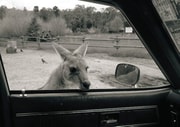Whooping cough cases skyrocket: Will 2024 break alarming records?
By
- Replies 37
As we approach the second half of 2024, Australia faces a health challenge that could set a new record for whooping cough infections since 2016.
With cases already surpassing 11,000 in just six months, compared to the 2,447 reported in the previous year, the nation is bracing for the worst year of whooping cough, also known as pertussis, in recent history.
Whooping cough is a highly infectious bacterial disease that poses the greatest risk to babies under six months old.
For adults, the initial symptoms can mimic those of a common cold or flu, which increases the likelihood of unknowingly spreading the disease within the community.
This stealthy onset is particularly concerning as it can lead to more severe and prolonged outbreaks.
The disease is notorious for its severe coughing fits, which can last up to 12 weeks, earning it the nickname '100-day cough.'
These coughing spells can be so intense that they lead to vomiting or even fractured ribs.
While the characteristic 'whoop' sound may not be present in older children and adults, the risk of transmission remains high.
Microbiologist Laurence Luu from the University of Technology Sydney emphasised the importance of early testing.
‘It's important to get tested early because there are antibiotics that can treat it, but they need to be taken early,’ he said.
‘If you're worried, wear a mask and isolate until you get tested.’
The resurgence of whooping cough is not entirely unexpected. Historically, large outbreaks occur cyclically, roughly every three to four years.
‘The immune system is so busy attacking whooping cough that it also makes you more vulnerable to other secondary respiratory infections,’ Dr Luu explained.
The last significant increase in cases was around 2017, and while an uptick was anticipated around 2020, it was likely delayed due to the COVID-19 pandemic.
With the easing of pandemic restrictions and the return to more regular social interactions, infections are on the rise.
‘You'll see sort of a spike in cases, and it'll go down for a few years and then come back up,’ he said.
‘It's pretty much on track to be the worst year for whooping cough since 2015–2016,’ Dr Luu continued.
Alarmingly, the demographic of those affected appears to be shifting, with high infection rates now seen in children aged 10–14 and an increasing number of cases in infants under one-year-old.
Missed routine vaccinations during the pandemic and reduced exposure to the disease may have left certain groups more vulnerable.
Adding to the situation's complexity is the emergence of new 'smarter' strains of bacteria that can evade vaccines.
Research conducted in 2020 identified a new strain during the 2008 epidemic that could only be targeted by two of the vaccine's components, reducing the effectiveness of the immunisation.
‘In Australia, we use a three-component vaccine, which targets three proteins of the bacteria,’ he said.
‘There is a five-component vaccine around, but that's not widely used in Australia ... hopefully, with those extra components, we can target these strains better.’
Professor Peter Richmond from the University of Western Australia is working on innovative solutions, including a nasal spray vaccine that could prevent infection altogether.
While these developments are promising, they highlight the ongoing need for vigilance and adaptation in our public health strategies.
Queensland and New South Wales are currently experiencing the highest surge in cases, with Victoria and other states beginning to show concerning trends as well.
‘We're just now starting to see the numbers are also going up in Victoria, and starting to increase in the other states as well,’ he stated.
‘This is really something that started in the second half of last year, and is now really causing problems, particularly in school-aged children.’
In the face of this potential epidemic, Australians must ensure they are up-to-date with their vaccinations and boosters.
‘It's a real wake-up call that we need to make sure that we get our vaccinations on time,’ Professor Richmond noted.
Pregnant women are particularly encouraged to get vaccinated to give their newborns immunity.
People over 65 and those in regular contact with babies should consider getting a booster, especially if it has been more than ten years since their last vaccine.
‘Adults, in general, if it's been more than sort of 10 years since your last vaccine, it's a good idea to get vaccinated to protect yourself, but also protect those around you,’ he said.
Whooping cough vaccines are free to pregnant women and children up to four as part of the National Immunisation Program, and adolescents aged 12 to 13 receive them through school immunisation programs.
In early 2024, China experienced a significant surge in COVID-19 cases, surpassing 30,000 within the first two months alone—nearly matching the total number recorded throughout the previous year.
Additionally, new strains of whooping cough resistant to antibiotics were detected.
Dr Luu and Professor Richmond emphasised the ongoing effectiveness of current vaccines as the primary means of protection.
In 2021, over 95 per cent of five-year-old children in Australia were fully vaccinated, including protection against whooping cough.
Coverage for the adolescent booster dose stood at approximately 87 per cent.
As the outbreak is expected to escalate, individuals must ensure they are current with vaccinations and boosters.
‘Pertussis is not going to go away, we know that, and I think this current resurgence is an example of that,’ Professor Richmond exclaimed.
 Have you prioritised vaccinations? How else are you ensuring safety from this disease for yourself and your loved ones? Share your strategies with us in the comments below!
Have you prioritised vaccinations? How else are you ensuring safety from this disease for yourself and your loved ones? Share your strategies with us in the comments below!
With cases already surpassing 11,000 in just six months, compared to the 2,447 reported in the previous year, the nation is bracing for the worst year of whooping cough, also known as pertussis, in recent history.
Whooping cough is a highly infectious bacterial disease that poses the greatest risk to babies under six months old.
For adults, the initial symptoms can mimic those of a common cold or flu, which increases the likelihood of unknowingly spreading the disease within the community.
This stealthy onset is particularly concerning as it can lead to more severe and prolonged outbreaks.
The disease is notorious for its severe coughing fits, which can last up to 12 weeks, earning it the nickname '100-day cough.'
These coughing spells can be so intense that they lead to vomiting or even fractured ribs.
While the characteristic 'whoop' sound may not be present in older children and adults, the risk of transmission remains high.
Microbiologist Laurence Luu from the University of Technology Sydney emphasised the importance of early testing.
‘It's important to get tested early because there are antibiotics that can treat it, but they need to be taken early,’ he said.
‘If you're worried, wear a mask and isolate until you get tested.’
The resurgence of whooping cough is not entirely unexpected. Historically, large outbreaks occur cyclically, roughly every three to four years.
‘The immune system is so busy attacking whooping cough that it also makes you more vulnerable to other secondary respiratory infections,’ Dr Luu explained.
The last significant increase in cases was around 2017, and while an uptick was anticipated around 2020, it was likely delayed due to the COVID-19 pandemic.
With the easing of pandemic restrictions and the return to more regular social interactions, infections are on the rise.
‘You'll see sort of a spike in cases, and it'll go down for a few years and then come back up,’ he said.
‘It's pretty much on track to be the worst year for whooping cough since 2015–2016,’ Dr Luu continued.
Alarmingly, the demographic of those affected appears to be shifting, with high infection rates now seen in children aged 10–14 and an increasing number of cases in infants under one-year-old.
Missed routine vaccinations during the pandemic and reduced exposure to the disease may have left certain groups more vulnerable.
Adding to the situation's complexity is the emergence of new 'smarter' strains of bacteria that can evade vaccines.
Research conducted in 2020 identified a new strain during the 2008 epidemic that could only be targeted by two of the vaccine's components, reducing the effectiveness of the immunisation.
‘In Australia, we use a three-component vaccine, which targets three proteins of the bacteria,’ he said.
‘There is a five-component vaccine around, but that's not widely used in Australia ... hopefully, with those extra components, we can target these strains better.’
Professor Peter Richmond from the University of Western Australia is working on innovative solutions, including a nasal spray vaccine that could prevent infection altogether.
While these developments are promising, they highlight the ongoing need for vigilance and adaptation in our public health strategies.
Queensland and New South Wales are currently experiencing the highest surge in cases, with Victoria and other states beginning to show concerning trends as well.
‘We're just now starting to see the numbers are also going up in Victoria, and starting to increase in the other states as well,’ he stated.
‘This is really something that started in the second half of last year, and is now really causing problems, particularly in school-aged children.’
In the face of this potential epidemic, Australians must ensure they are up-to-date with their vaccinations and boosters.
‘It's a real wake-up call that we need to make sure that we get our vaccinations on time,’ Professor Richmond noted.
Pregnant women are particularly encouraged to get vaccinated to give their newborns immunity.
People over 65 and those in regular contact with babies should consider getting a booster, especially if it has been more than ten years since their last vaccine.
‘Adults, in general, if it's been more than sort of 10 years since your last vaccine, it's a good idea to get vaccinated to protect yourself, but also protect those around you,’ he said.
Whooping cough vaccines are free to pregnant women and children up to four as part of the National Immunisation Program, and adolescents aged 12 to 13 receive them through school immunisation programs.
In early 2024, China experienced a significant surge in COVID-19 cases, surpassing 30,000 within the first two months alone—nearly matching the total number recorded throughout the previous year.
Additionally, new strains of whooping cough resistant to antibiotics were detected.
Dr Luu and Professor Richmond emphasised the ongoing effectiveness of current vaccines as the primary means of protection.
In 2021, over 95 per cent of five-year-old children in Australia were fully vaccinated, including protection against whooping cough.
Coverage for the adolescent booster dose stood at approximately 87 per cent.
As the outbreak is expected to escalate, individuals must ensure they are current with vaccinations and boosters.
‘Pertussis is not going to go away, we know that, and I think this current resurgence is an example of that,’ Professor Richmond exclaimed.
Key Takeaways
- Australia faced a significant whooping cough outbreak, with cases surging past 11,000 over the past six months, setting the stage for potentially the worst year of the disease since 2016.
- Whooping cough is highly contagious and most dangerous for babies under six months old, who are too young to be immunised, as well as posing serious risks to people over 65.
- Missed routine vaccinations during the COVID-19 pandemic and new strains that can evade vaccines have contributed to the increased vulnerability.
- Health experts advised staying up-to-date with whooping cough vaccinations and boosters, with free vaccines provided to pregnant women, children up to four years old, and adolescents through the National Immunisation Program.









